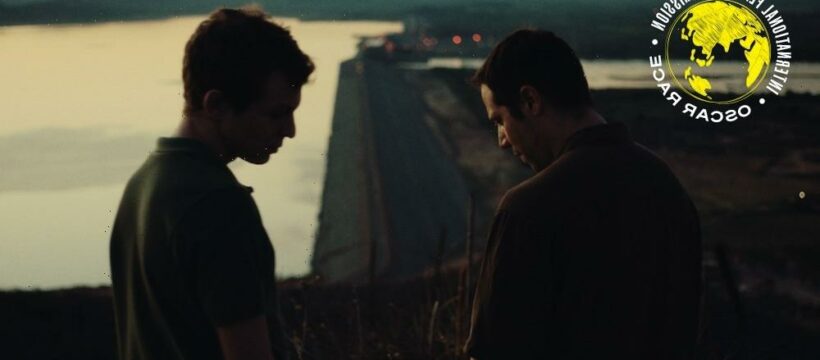At the halfway mark, Aly Muritiba’s “Deserto Particular” clicks into high gear. There’s a change of scenery, yes; we move from the chilly South of Brazil to its arid Northeast. And there’s a change in point of view; we leave our protagonist behind and follow, instead, the person he was so intent on tracking down. More importantly, though, the film comes alive in its second half, which deepens and complicates the story we thought we were watching, about a disgraced cop trying to run away from the violence that’s set to cost him his job and his reputation. For some, the tender empathy that runs through the film’s latter half may not be enough to offset its choice of sympathetic leading man. Yet this Brazilian drama is a welcome and assured intervention into that country’s calcified ideals about desire and masculinity.
Daniel (Antonio Saboia) is spiraling. When we first meet him, he’s running himself into exhaustion. With an elderly parent in need of constant care and his career in the police force in jeopardy following a violent incident that’s earned him plenty of national press, Daniel’s finding it hard to stay focused. There may be a warrant for his arrest still and more consequences than he’s willing to grapple with. His only source of joy is Sara, a woman he’s only ever texted (and sexted) with. They’ve never met (she lives across the country) but the mere thought of her is enough to garner a rare smile out of this most stoic of men. One day, as his entire life seems on the brink of breaking down, he throws caution to the wind and decides to drive more than 1,500 miles her way after she stops answering his texts (and, perhaps, more shamefully, his most recent nude).
Who Sara really is and the reason why she so suddenly ghosts Daniel is obvious, perhaps, if you have the film’s cast list handy (Sara is played by Pedro Fasanaro). Yet such a reveal within the structure of the film is nevertheless drawn out for increased narrative impact. You spend so much time in Daniel’s oppressively heterosexual and patriarchal world of retired sergeants and cops-turned-security men that the prospect of Sara as a beautiful boy in a wig and a short satin dress is enough to jolt the film awake. Her arrival in the film immediately skews and reframes everything that’s come before, including the vision of Daniel we’d been led to so create in our minds.
Understood as a diptych on Brazilian masculinity, “Deserto Particular” is particularly engaging. Here are two men, after all, who are all but trapped by the expectations set upon them by their respective cultures. It’s only when Daniel sees a system that demanded his abject obedience throwing him under, that he begins to imagine a different way of relating to those around him. And while Robson, who clearly disappears into his Sara persona as a way to live out fantasies closed out to him by his devout family, has a more vivid imagination than Daniel, he clearly struggles to find a way out of his current situation.
Muritiba and Henrique Dos Santos’s slow burn of a screenplay may take time to get to its most affecting moments (particularly a first date of sorts scored by Bonnie Tyler’s “Total Eclipse of the Heart” which shows off Luis Armando Arteaga’s intimate camerawork) but the patience it demands of its audience may well be its greatest triumph. Its final half hour is achingly beautiful — and incredibly erotic.
Much of that is due to the strength of its performances, particularly that of Fasanaro, who finds in Robson/Sara a rare mix of timidity and courage that’s unwaveringly disarming. In his hands, Robson is a queer man (the film, it must be noted, mostly shies away from clear-cut labels) toying and experimenting with his gender expression and sexual desires. His choice to don a wig and a dress and lose himself in Sara is so transgressive in his small community that it’s not surprising his first instinct once Daniel arrives in town is to both entice him out and also push him away lest the careful balance of a stealth life he’s built for himself crashes around him.
“Deserto Particular,” which is representing Brazil in the Oscar international feature category, almost feels like two films stitched together. Or, rather, like an intentional suturing of two stories whose visible seams are entirely the point. It is only through the juxtapositions that structure the film that Daniel and Robson’s story can illuminate the rigidity of Brazilian masculinity that Muritiba is so intent on deconstructing — and reimagining, with what turns out to be a soft-hearted ending fittingly scored by the vocal stylings of Bonnie Tyler.
Source: Read Full Article
